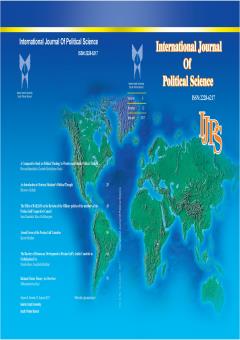The Combination of Critical Rationality and the Theory of Democracy in Karl Popper's Political Thought
Subject Areas :
Hamidreza Rasuli Asiyabi
1
,
Garineh Keshishyan Siraki
2
*
![]() ,
Seyed Ali Mortazavian Farsani
3
,
Seyed Ali Mortazavian Farsani
3
1 - Department of Political Science, South Tehran Branch, Islamic Azad University, Tehran, Iran
2 - Department of Political Science, South Tehran Branch, Islamic Azad University, Tehran, Iran & Member of the Western Studies Research Institute
3 - Department of Political Science, Central Tehran Branch, Islamic Azad University, Tehran, Iran
Keywords:
Abstract :
Popper, by proposing the theory of falsifiability as a prerequisite for the scientific nature of theories and hypotheses and by rejecting inductive method as the conventional scientific methodology up to that time, presented a new criterion for distinguishing science from pseudo-science, which sparked much agreement and disagreement. Inspired by the Socratic dialectical method, he affirmed the un-certainty and conjectural nature of theories and beliefs, and by equating reason with criticism, he considered the only method of approaching truth to be through continuous dialogue while observing the principles of liberty, tolerance, and fallibility in a free environment guaranteed by the democrat-ic state he envisioned. The democracy Popper had in mind, contrary to the prevailing interpretation, did not mean rule by the people or rule by the majority but rather stemmed from critical rationality and its foundations such as falsifiability and fallibility, which had a negative rather than a positive character. Popper, through a negative interpretation of how democracy functioned in ancient Greece, particularly during the Periclean era, first regarded the age-old question of “Who should rule?” as fundamentally mistaken and defined the correct interpretation of democracy as the ability to remove or dismiss an undesirable government without bloodshed. He redefined the punishment of exile in ancient Greece as a method of preventing tyranny and despotism stemming from popular-ity, thereby presenting evidence of the negative and deterrent aspect of democracy. In this study, the researcher, based on a descriptive-analytical method, attempts to show the close relationship be-tween the theory of critical rationality and Popper’s theory of democracy based on the main ques-tion and hypothesis.
Magee, Bryan (1980). Popper. Tehran: Kha-razmi Publications.
Mahmoud Zadeh, Rahbar (2018). Analysis of Action in the Logic of Situation. Teh-ran: Tarh-e Naqd Publications.
Popper, Karl Raymond (2016). The Logic of Scientific Discovery. Tehran: Elmi va Farhangi Publications.
Popper, Karl Raymond (2016). The Poverty of Historicism. Tehran: Sherkat-e Sahami Enteshar Publications.
Popper, Karl Raymond (2016). The Unended Quest. Tehran: Doostan Publica-tions.
Popper, Karl Raymond (2017). All Life Is Problem Solving. Tehran: Markaz Publications.
Popper, Karl Raymond (2017). I Know That I Know Nothing. Tehran: Qoqnoos Publications.
Popper, Karl Raymond (2017). The Open Society and Its Enemies. Tehran: Kharazmi Publications.
Popper, Karl Raymond (2019). In Search of a Better World. Tehran: Shabkhiz Pub-lications.
Popper, Karl Raymond (2019). The Lesson of This Century. Tehran: Tarh-e No Publications.
Popper, Karl Raymond (2022). The Sources of Knowledge and Ignorance. Teh-ran: Ney Publications.
Shearmur, Jeremy (2013). The Political Thought of Karl Popper. Tehran: Mahi Publications.

